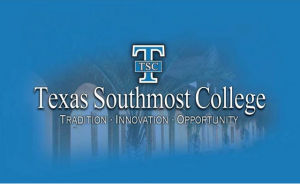BROWNSVILLE — The Southern Association of Colleges and Schools Commission on Colleges has determined that a complaint about compliance by Texas Southmost College with SACSCOC accreditation standards has “sufficient substance to warrant further review,” according to documents provided to The Brownsville Herald.
SACSCOC is the accrediting agency for TSC. The college confirmed Thursday that it had received a letter from the agency asking for information in support of compliance.
The complaint contends that Mike Shannon was appointed interim TSC president without the motion being properly seconded after President Lily Tercero was placed on administrative leave in September.
“First it is important to note: there was no second to this motion. Therefore it would appear that the board’s action is invalid and Mike Shannon is not the interim chief executive officer of Texas Southmost College. Additionally, given that he has not been properly appointed, his decisions and actions should also be in question,” the complaint states.
The complaint also contends that recent actions by the board of trustees have placed TSC out of compliance with certain core requirements and comprehensive standards for accreditation, including:
H Governing board: Since the last election held in May and June 2016, TSC’s board of trustees is “being controlled by a minority of board members, led by the current board chair, Adela Garza. Additionally, members of the governing board are acting with authority as individuals, not as a collective entity.”
H Chief executive officer, governing board control and board/administrative distinction: “The chief executive officer is responsible for implementing the board’s policies, evaluating them periodically, and reporting results to the board for possible revision or refinement. However, for the past several months, the president has not been able to obtain board approval for revised policies because of the actions of board members, including the individual who is now serving as the chair of the board. Those actions include the continuous tabling of agenda items relating to institutional policies.
“Lastly, since the May/June 2016 elections, there is no clear and appropriate distinction, in practice, between the policy making responsibility of the board and the responsibility of the administration and faculty to administer and implement policy. It is evident that certain board members prefer to do both.”
The complaint cites as an example a special board meeting held June 22, 2016. While no minutes are available, the complainant transcribed video from the meeting, which reflects board member Ruben Herrera making this motion: “Implement a CCD plan to accommodate non-traditional students by the fall semester. What does this mean — this means that we are going to accommodate a class or two in the fall semester and a class or two in the spring semester and two for the summer for the non-traditional students. It’s not a cohort, it’s not a new program, it’s the same program you have, just at hours non-traditional students can attend, that’s what I’m asking for and this is the motion on the table.”
Board member Reynaldo Garcia then stated, “We are stepping outside our boundaries as far as our duties as board members to administer. We are supposed to set policy, accept the budget and hire the president, but are we dictating curriculum here?”
A discussion ensues, with board member Trey Mendez eventually asking “whether the board can actually do this,” and Garcia responding, “OK, get that straight, please. The administration is supposed to advise what to do. We are not supposed to advise them on what to do. We hire them to do that. Run the curriculum and run the instruction program. Not you and I.”





